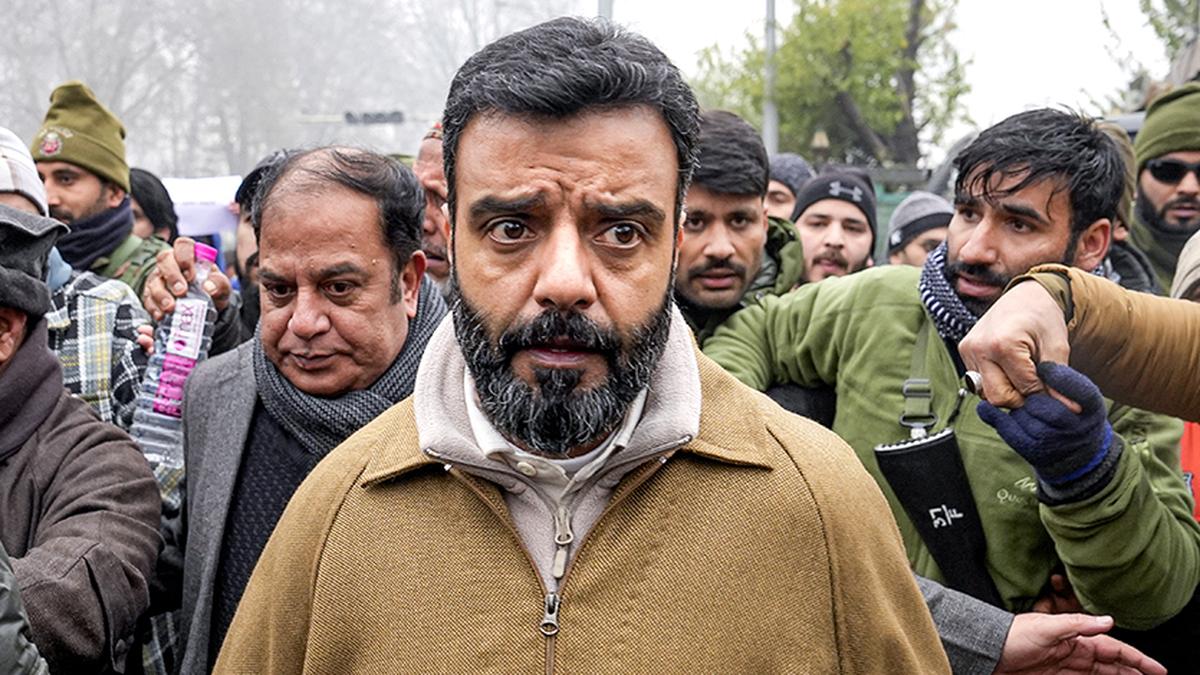 |
|
The recent political landscape in Jammu and Kashmir has been significantly impacted by a controversy surrounding National Conference (NC) MP Aga Syed Ruhullah's participation in a protest against the current reservation policy. This action has ignited a fierce internal debate within the NC, pitting Ruhullah against his party colleague, Salman Sagar, and highlighting the deep divisions within the party regarding this sensitive issue. The protest, which took place outside the Chief Minister's residence in Srinagar, involved several opposition parties and focused on the perceived inequities within the existing reservation system, which allocates up to 70% of seats to marginalized communities, leaving only 30% for open merit candidates. This demonstration brought to the forefront the complex interplay between political maneuvering, social justice concerns, and the internal dynamics of a major political party in the region.
Salman Sagar, a fellow NC member and MLA from the Hazratbal Assembly constituency, vehemently criticized Ruhullah's involvement in the protest, asserting that it was an individual action not reflecting official party policy. He emphasized that any legitimate NC protest must be authorized by senior party leaders like Dr. Farooq Abdullah and Omar Abdullah. Sagar's sharp rebuke went beyond a simple disagreement; he accused Ruhullah of inadvertently bolstering the positions of rival parties, particularly the Peoples Democratic Party (PDP), by participating in a gathering he described as a collection of ‘enemies.’ This accusation points to a deeper concern within the NC about maintaining party unity and preventing internal divisions from being exploited by opposing political factions. Sagar further criticized the protest itself, characterizing it as an unnecessary display of political theatrics that could damage the party's reputation.
Ruhullah's response to Sagar's criticism was swift and pointed. Taking to the social media platform X, he evoked the powerful imagery of Malcolm X's ‘House Negro and field Negro’ analogy. By identifying himself as a ‘field Negro,’ Ruhullah subtly yet effectively countered Sagar's accusations, suggesting a perception of being marginalized within his own party and highlighting a possible power imbalance. This response further escalated the internal conflict, moving it beyond a simple procedural disagreement and into a more deeply symbolic and emotional battle for influence and representation within the NC. The use of such a potent historical and racial analogy also underscores the sensitive nature of the underlying issues and the deep-seated grievances that may be fueling the conflict.
The controversy extended beyond the confines of the NC. The Congress party, an ally of the NC, also voiced its disapproval of Ruhullah's actions, with senior Congress leader G.A. Mir describing his participation as a mere attempt to grab media attention, rather than a responsible act by a seasoned MP. This criticism indicates that the controversy's ripples extend beyond the NC's internal dynamics, potentially influencing the broader political alliances and collaborations in the region. Conversely, the PDP president, Mehbooba Mufti, leveraged the situation to criticize Chief Minister Omar Abdullah for his perceived inaction on the reservation issue. Mufti's statement not only addressed the core concerns of the protesters but also highlighted the political opportunity presented by the NC's internal discord.
The BJP, a key political opponent, weighed in on the issue from a different perspective. BJP general secretary Tarun Chugh warned against any attempt to alter the current reservation policy, emphasizing the constitutional rights of marginalized communities. Chugh's statement serves to solidify the BJP's position on the issue and presents a stark contrast to the views of the protesting parties. By linking the NC's internal conflict to a potential challenge to the reservation policy, the BJP seeks to frame the issue as a matter of upholding constitutional rights and accusing the NC of engaging in ‘revenge politics.’ This further complicates the situation, transforming it into a larger political battle encompassing broader ideological and partisan positions.
The controversy surrounding Ruhullah's protest highlights the intricate interplay of political strategy, internal party dynamics, and social justice concerns in the context of Jammu and Kashmir's complex political landscape. The differing opinions expressed by various political figures, ranging from internal party critiques to external political maneuvering, underscore the highly sensitive nature of the reservation policy and its profound impact on the region's social and political fabric. Furthermore, the controversy reveals the potent symbolism of seemingly simple acts of protest and the significant consequences they can have on the political stability and internal cohesion of major political parties. The ongoing debate promises to continue shaping the political discourse in Jammu and Kashmir for the foreseeable future, particularly as the upcoming elections approach and the ramifications of this conflict continue to resonate within the political establishment.
Source: Ruhullah faces barbs from NC party colleague on staging protest outside CM’s residence
